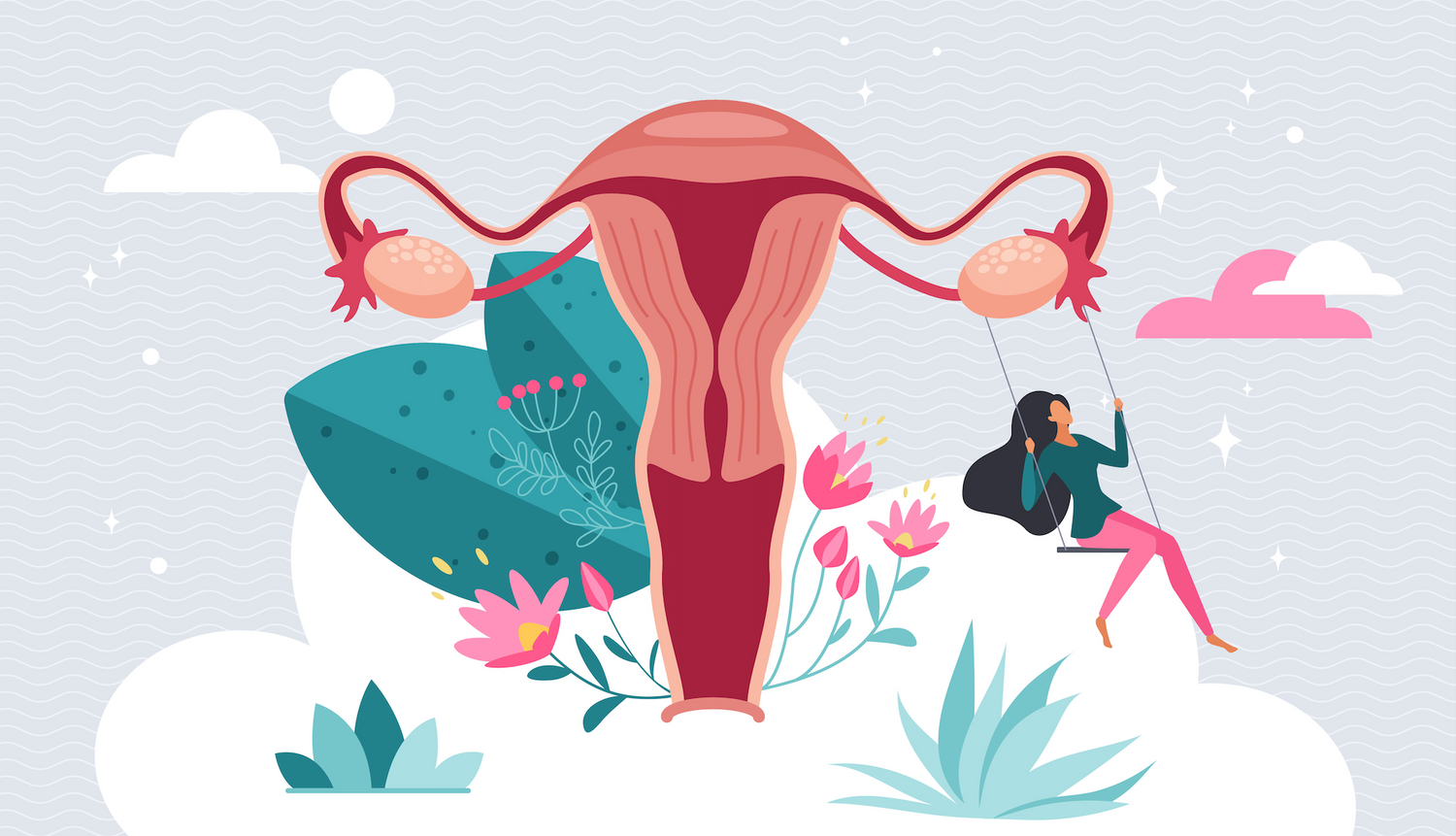
The solution you are looking for all menopause symptoms
Hot flashes / Night sweats / Mood swings / Low energy / Insomnia / Vaginal dryness / Urinary infections
Menopause: Symptoms, Treatments, and Experiences
Dr. Juan invited three women to share their experiences during this stage of life and to openly talk about the physical and emotional symptoms they’ve faced, such as hot flashes, insomnia, decreased sexual desire, and mood swings.
Real women, real stories
#WeAreNotAlone
Change is inevitable... Let’s conquer menopause together!

What is menopause?
Menopause is not a disease or a disorder, but a natural process that occurs when the female reproductive organs stop producing estrogen.
Let’s talk honestly
What You Need to Know About Menopause
When does menopause occur?
Although it’s not the same for every woman, it usually happens gradually starting around age 40. However, it can occur much earlier due to certain illnesses or medical treatments.
How can I recognize menopause?
Menopause is considered to have begun when 12 months have passed since your last menstrual period.
What are the symptoms?
During the transition to menopause, or perimenopause, many women begin to notice changes in their monthly cycles. They may go several months without a period and then have one again. They may also gradually experience hot flashes, trouble sleeping, mood changes, or other symptoms. This process typically lasts between 7 and 14 years.
Why do these symptoms occur?
Because the ovaries gradually reduce the production of the hormones estrogen and progesterone, until they eventually stop producing them altogether. Menopause is different for every woman, but in general, it causes a range of symptoms such as hot flashes and night sweats, trouble sleeping, decreased libido, mood swings, low energy, and other effects that can impact quality of life.
Is there a higher risk of disease after menopause?
Estrogen is connected to various functions in the body, which is why when its production stops, it can disrupt certain processes and increase the risk of developing health issues. Some of the most significant risks include a higher chance of heart problems such as heart attacks or strokes, urinary tract infections, and osteoporosis.
Why are hot flashes and night sweats so common during this process?
Excessive heat is the most common symptom during this process, affecting 80% of women and potentially lasting for several years. This happens mainly because estrogen plays a role in regulating body temperature. When estrogen levels drop, the body’s temperature regulation becomes unstable. As a result, even a small rise in temperature can trigger exaggerated sweating and hot flashes as the body tries to cool itself down. Contrary to what it might seem, regular physical exercise during this stage actually helps gradually stabilize body temperature.
Why is it harder to lose weight during menopause?
The drop in estrogen also affects thermogenesis, or the body's ability to burn calories. Additionally, muscle mass tends to decrease. For this reason, even if we eat the same and exercise at the same level, fat isn’t burned as efficiently and tends to accumulate—especially around the abdomen. This, in turn, increases the risk of cardiovascular disease and damage to major organs.
Why does menopause cause so much vaginal dryness and dryness in other tissues of the body?
The drop in estrogen leads to dryness in the skin and in all the body’s mucous membranes, including those of the eyes, intestines, and vaginal area. When vaginal dryness is left untreated, it can progress and affect the pelvic floor and urinary system. That’s why this symptom often causes issues ranging from burning and pain during sex to discomfort while urinating, vaginal infections, and urinary incontinence.
Is it normal for this to affect my sex life?
It’s very common for these changes to affect a couple’s relationship. While many women continue to enjoy intimacy without major issues, for others, sex becomes a challenge. It’s important to maintain open communication with your partner about this topic, seek help from a specialist to explore options that can help relieve vaginal dryness, learn exercises to strengthen the pelvic floor, and consider behavioral or couples therapy if needed.
Why are there mood changes and more depression during menopause?
The central nervous system, which controls our mood, is also affected by the loss of estrogen, altering our sense of well-being. That’s why during this stage, energy levels often drop, fatigue sets in more easily, concentration decreases, and there’s increased irritability, mood swings, and a greater tendency toward depression.
Why does the risk of developing heart problems increase during menopause?
For several reasons. Estrogen plays a role in fat metabolism, so when estrogen production drops, the body burns fewer calories. This leads to a greater accumulation of body fat, especially around the abdomen, vital organs, and in the arteries. In addition, arteries tend to deteriorate more easily in the absence of estrogen, further increasing the risk of heart problems.
Why do bones and muscles weaken during menopause?
The drop in estrogen also affects muscle mass and bone density, causing the musculoskeletal structure to weaken. That’s why it’s essential to see a doctor for bone density tests and to check vitamin D levels, among other things, to take timely action. It’s also important to consume high-quality protein and do weight-bearing exercises to help maintain and build muscle mass.
Is there treatment for these symptoms?
The most common treatment is hormone replacement therapy. However, it’s not suitable for all women, as it may have side effects such as an increased risk of heart attacks, strokes, breast cancer, and blood clots in the lungs, among others. There are also natural alternatives like phytoestrogens (plant-based estrogens) and bioidentical hormones. Talk to your gynecologist about the options that are best for you.
Are there natural supplements for menopause symptoms?
There is growing research on vitamin and herbal supplements that can help support the body during menopause, easing symptoms like hot flashes, insomnia, and vaginal dryness. Talk to your doctor about the best options for you.
What other aspects should I consider during this process?
- Lifestyle changes are very important. Here are some aspects you may want to consider:
- Quit smoking.
- Avoid alcohol.
- Work with your doctor to develop a personalized nutrition plan and increase physical activity to counteract fat gain.
- Improve your sleep routine. Sleeping more and better is key to supporting hormone regulation, mood, and fat burning.
- Explore complementary therapies such as acupuncture and controlled breathing.
- Consider behavioral support therapy.
- Join a community where you can share experiences, gain information, and find motivation.

















